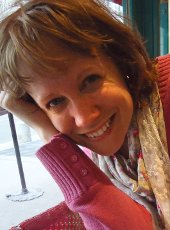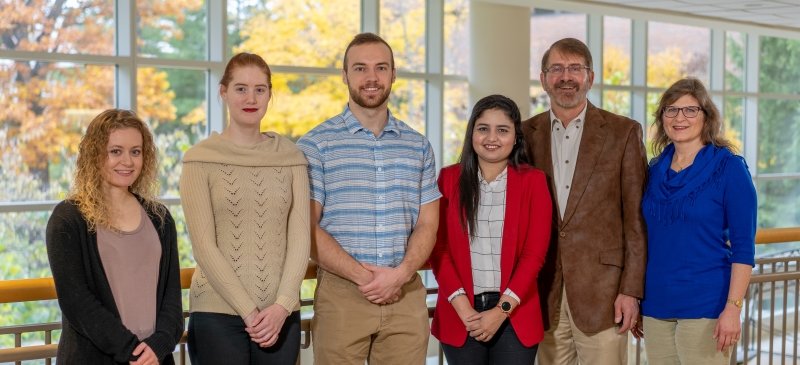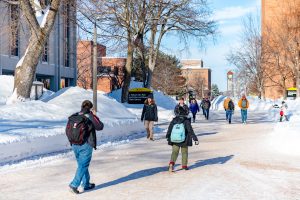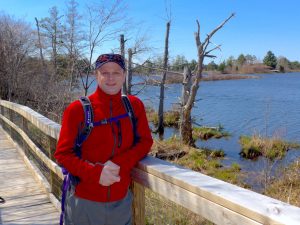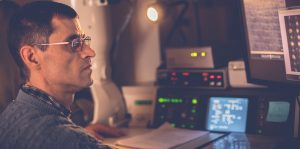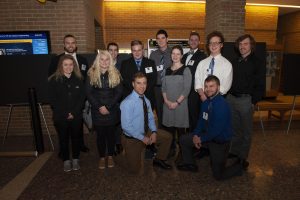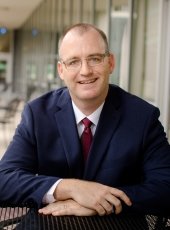 We are midway through the semester now and winter is in the air and on the ground with a coating of snow that seems to have stayed. On the Walker lawn outside my office the broomball courts are under construction. I recently enjoyed watching my first cardboard boat races, including one magnificent vessel captained by our very own President Koubek!
We are midway through the semester now and winter is in the air and on the ground with a coating of snow that seems to have stayed. On the Walker lawn outside my office the broomball courts are under construction. I recently enjoyed watching my first cardboard boat races, including one magnificent vessel captained by our very own President Koubek!
One of my favorite events as Dean, the induction ceremony for our Distinguished Alumni Academy was held in October. We were proud to induct Ziyong Cai (1990 Physics PhD), who captivated the crowd with his tale of growing up in China during the cultural revolution when schools were closed and he had to save for more than a year to afford the TOEFL fee. Laura Barrientos (1995 Chemistry PhD) described her work battling the Ebola virus and starting her own business. Finally, we inducted our third ever honorary member into the academy, former Humanities chair, Dean of Sciences and Arts and Michigan Tech’s first ever Provost, William Powers. Powers shared his stories of working with former President Ray Smith, and leading the department as it moved into the as yet unrenovated Sherman Gym where faculty and staff worked in cubicles on the basketball court!
Teaching Abstract Algebra
In between my dean duties, I grade stacks of papers, as this semester I am teaching my first class here at Tech, with 42 students in Math 3310 Abstract Algebra. It has been wonderful to be back in the classroom after two years away, and great to have a real chalkboard! It has been a thrill to get to know so many of our undergraduates.
College Grows
For the first time ever, the freshmen class in CSA was majority (52%) female! This class was 8% larger than last year, and our early application numbers for Fall 2020 are up 109% from last year at the same time! I’m proud of our wide array of degree options in the College that are proving so popular with the students.
Our ROTC programs are thriving, with 70 cadets this Fall in Army and more than 100 in Air Force (up from 30 just a few years ago)! Both programs were recently visited by Colonels who command multiple ROTC units, and both visiting Colonels were very impressed with what they observed on the ground.
New Space
Planning continues for our new health research building. This beautiful laboratory building will be near the current Chemistry building, which will also be renovated to host our departments of Chemistry, Chemical Engineering, Kinesiology and Integrative Physiology, and Biomedical Engineering. Architects are busy on campus gathering information from our faculty to design laboratory space to meet their needs.
Support
Critical to everything we do are our alumni and friend donors. All your donations to our departments, scholarships, and the general fund are vitally important to our success. For those interested in supporting the greatest needs of the College, we have established a “Dean’s Priority Fund”. With state support representing only about 16% of MTU’s budget, your gifts make a huge difference in the lives of our students and faculty every day.
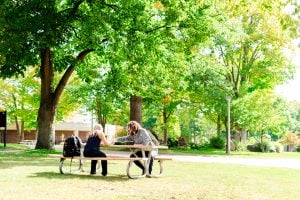
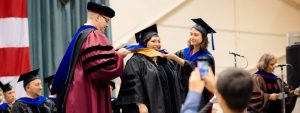 Greetings from the College of Sciences and Arts at Michigan Tech!
Greetings from the College of Sciences and Arts at Michigan Tech!